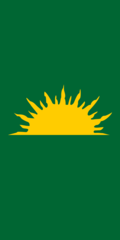Related Research Articles
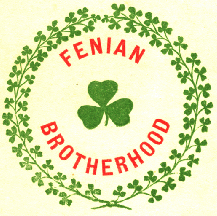
The Fenian Brotherhood was an Irish republican organisation founded in the United States in 1858 by John O'Mahony and Michael Doheny. It was a precursor to Clan na Gael, a sister organisation to the Irish Republican Brotherhood (IRB). Members were commonly known as "Fenians". O'Mahony, who was a Gaelic scholar, named his organisation after the Fianna, the legendary band of Irish warriors led by Fionn mac Cumhaill.

The Irish Volunteers, also known as the Irish Volunteer Force or the Irish Volunteer Army, was a paramilitary organisation established in 1913 by nationalists and republicans in Ireland. It was ostensibly formed in response to the formation of its Irish unionist/loyalist counterpart the Ulster Volunteers in 1912, and its declared primary aim was "to secure and maintain the rights and liberties common to the whole people of Ireland". Its ranks included members of the Conradh na Gaeilge, Ancient Order of Hibernians, Sinn Féin and the Irish Republican Brotherhood. Increasing rapidly to a strength of nearly 200,000 by mid-1914, it split in September of that year over John Redmond's support for the British war effort during World War I, with the smaller group opposed to Redmond's decision retaining the name "Irish Volunteers".

The Irish Republican Brotherhood was a secret oath-bound fraternal organisation dedicated to the establishment of an "independent democratic republic" in Ireland between 1858 and 1924. Its counterpart in the United States of America was initially the Fenian Brotherhood, but from the 1870s it was Clan na Gael. The members of both wings of the movement are often referred to as "Fenians". The IRB played an important role in the history of Ireland, as the chief advocate of republicanism during the campaign for Ireland's independence from the United Kingdom, successor to movements such as the United Irishmen of the 1790s and the Young Irelanders of the 1840s.

Thomas James Clarke was an Irish republican and a leader of the Irish Republican Brotherhood. Clarke was arguably the person most responsible for the 1916 Easter Rising. A proponent of armed struggle against British rule in Ireland for most of his life, Clarke spent 15 years in English prisons prior to his role in the Easter Rising, and was executed by firing squad after it was defeated.
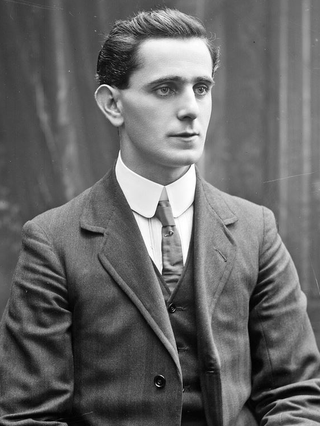
Seán Mac Diarmada, also known as Seán MacDermott, was an Irish republican political activist and revolutionary leader. He was one of the seven leaders of the Easter Rising of 1916, which he helped to organise as a member of the Military Committee of the Irish Republican Brotherhood (IRB) and was the second signatory of the Proclamation of the Irish Republic. He was executed for his part in the Rising at age 33.

Denis McCullough was a prominent Irish nationalist political activist in the early 20th century, who served as President of the Irish Republican Brotherhood (IRB) from 1915 to 1916.
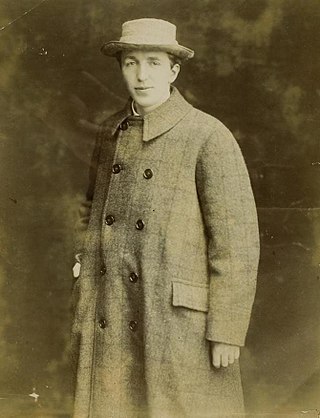
John Bulmer Hobson was an Irish republican. He was a leading member of the Irish Volunteers and the Irish Republican Brotherhood (IRB) before the Easter Rising in 1916. Hobson swore Patrick Pearse into membership of the IRB in late 1913. He opposed and attempted to prevent the Easter Rising. Hobson was also chief of staff of Fianna Éireann, which he helped to found.
Clan na Gael was an Irish republican organization in the United States in the late 19th and 20th centuries, successor to the Fenian Brotherhood and a sister organization to the Irish Republican Brotherhood.
Abstentionism is standing for election to a deliberative assembly while refusing to take up any seats won or otherwise participate in the assembly's business. Abstentionism differs from an election boycott in that abstentionists participate in the election itself. Abstentionism has been used by Irish republican political movements in the United Kingdom and Ireland since the early 19th century. It was also used by Hungarian and Czech nationalists in the Austrian Imperial Council in the 1860s.

John O'Leary was an Irish separatist and a leading Fenian. He studied both law and medicine but did not take a degree and for his involvement in the Irish Republican Brotherhood he was imprisoned in England during the nineteenth century.
The term New Departure has been used to describe several initiatives in the late 19th century by which Irish republicans, who were committed to independence from Britain by physical force, attempted to find a common ground for co-operation with groups committed to Irish Home Rule by constitutional means. In the wake of the Fenian Rising of 1867 and the unpopular executions which followed it, Fenianism was popularised and became more moderate, while the Home Rule movement was edging toward radicalism at the same time, laying the framework for the alliance. The term was coined by John Devoy in an anonymous article in the New York Herald on 27 October 1878 in which he laid out a framework for a new policy.
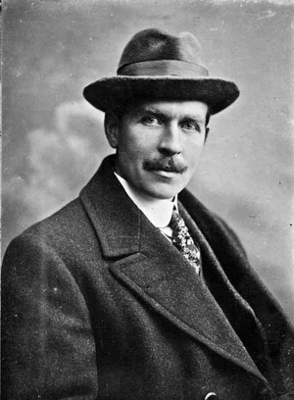
Diarmuid Lynch was a member of the Irish Republican Brotherhood and Sinn Féin member of the First Dáil.

Thomas Joseph Kelly was an Irish revolutionary and leader of the Irish Republican Brotherhood (IRB), a secret organisation with the objective of establishing an Irish republic independent from the United Kingdom. Kelly was the nominal leader of the failed Fenian Rising of 1867. He had previously also been an officer in the Union Army during the American Civil War, serving mainly with the 10th Ohio Infantry "The Bloody 10th".
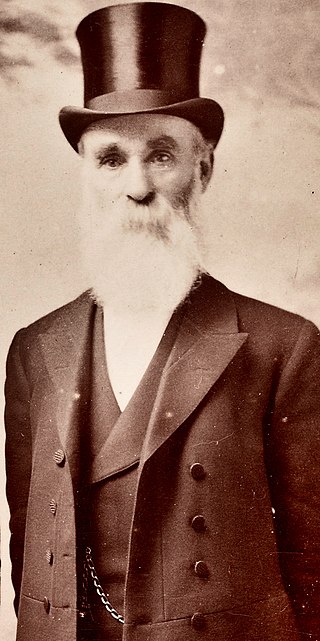
James Francis XavierO'Brien was an Irish nationalist Fenian revolutionary in the 1860s. He was later elected to the House of Commons of the United Kingdom of Great Britain and Ireland, as a Member of Parliament (MP) in the Irish Parliamentary Party.

John Daly, was an Irish republican, and a leading member of the Irish Republican Brotherhood. He was uncle to Kathleen Clarke, wife of Tom Clarke who was executed for his part in the 1916 Rising and who was a leading member of the IRB, and her brother Ned Daly who was also executed in 1916. Daly briefly served as a member of the British Parliament but was resented for having previously been convicted for treason against the British state. Daly also served as Mayor of Limerick for 3 years at the turn of the century.
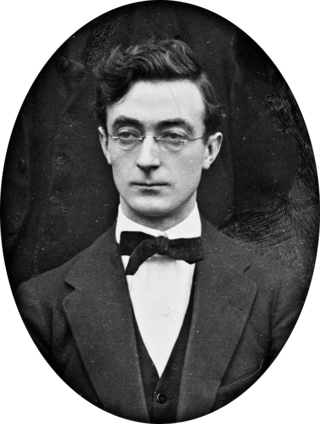
Seán McGarry was a 20th-century Irish nationalist and politician. A longtime senior member of the Irish Republican Brotherhood (IRB), he served as its president from May 1917 until May 1918 when he was one of a number of nationalist leaders arrested for his alleged involvement in the so-called German Plot.
James Aubrey (Seamus) Deakin was an Irish nationalist and member of the Irish Republican Brotherhood (IRB), of which he was president from 1913 to 1914.
Henry Dixon was an Irish republican. He was a member of several nineteenth-century nationalist societies, a founding member of Sinn Féin, and a director of the Sinn Féin Printing & Publishing Company.

The word Fenian served as an umbrella term for the Irish Republican Brotherhood (IRB) and their affiliate in the United States, the Fenian Brotherhood. They were secret political organisations in the late 19th and early 20th centuries dedicated to the establishment of an independent Irish Republic. In 1867 they sought to coordinate raids into Canada from the United States with a rising in Ireland. In the 1916 Easter Rising and the 1919–1921 Irish War of Independence, the IRB led the republican struggle.

The Fenian Rising of 1867 was a rebellion against British rule in Ireland, organised by the Irish Republican Brotherhood (IRB).
References
- ↑ McGee, Owen (2005). The IRB: The Irish Republican Brotherhood, from the Land League to Sinn Féin. Four Courts Press. p. 351. ISBN 978-1-85182-972-9.
- ↑ Mitchell, Martin J. (2008). New Perspectives on the Irish in Scotland. John Donald. p. 125. ISBN 978-1-904607-83-0.
